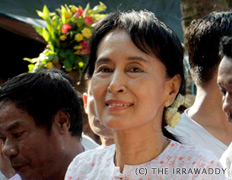
News about Daw Aung San Suu Kyi
Since her release on 13 November 2010, Daw Aung San Suu Kyi has proven that she continues to be a powerful force for social and political progress in Burma.
Follow her efforts to promote human rights, social development, democracy and national reconciliation in Burma in the following articles about her work, her words, and her long-awaited release.
Posts about ‘Daw Aung San Suu Kyi’
Statement by Kawthoolei Armed Forces on signing NCA
Our First Karen President in history never signed to be a part of Burma, or a part of a Union to gain the Independence of Burma from the British. (Neither did the Arakan, Mon or Karenni) […]
| |More Clashes, More Talks, No Protection
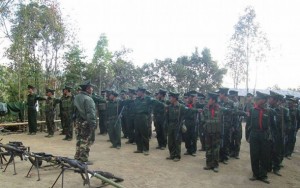 As talks over the signing of a nationwide ceasefire agreement (NCA) continue, with another meeting planned for later this month, the Burma Army continues to attack various ethnic armed organizations (EAOs) in Kachin, Palaung, Shan and Karen areas, casting doubt on the dominant narrative of optimism that surrounds the NCA. Meanwhile, as has always been the case, it is civilians and local communities who are bearing the brunt of the war, with their protection glaringly absent in the ceasefire discourse […]
As talks over the signing of a nationwide ceasefire agreement (NCA) continue, with another meeting planned for later this month, the Burma Army continues to attack various ethnic armed organizations (EAOs) in Kachin, Palaung, Shan and Karen areas, casting doubt on the dominant narrative of optimism that surrounds the NCA. Meanwhile, as has always been the case, it is civilians and local communities who are bearing the brunt of the war, with their protection glaringly absent in the ceasefire discourse […]
Five Myanmar Journalists Freed from Prison as Part of Mass Amnesty
Bangkok, July 31, 2015–Five journalists jailed on anti-state charges in Myanmar were released on Thursday in a presidential amnesty of nearly 7,000 prisoners, according to news reports. The Committee to Protect Journalists welcomes the journalists’ release but calls on Myanmar authorities to release all other journalists imprisoned in the country […]
| |Constitutional Crackdown Brings A Dark Day for Democracy in Burma
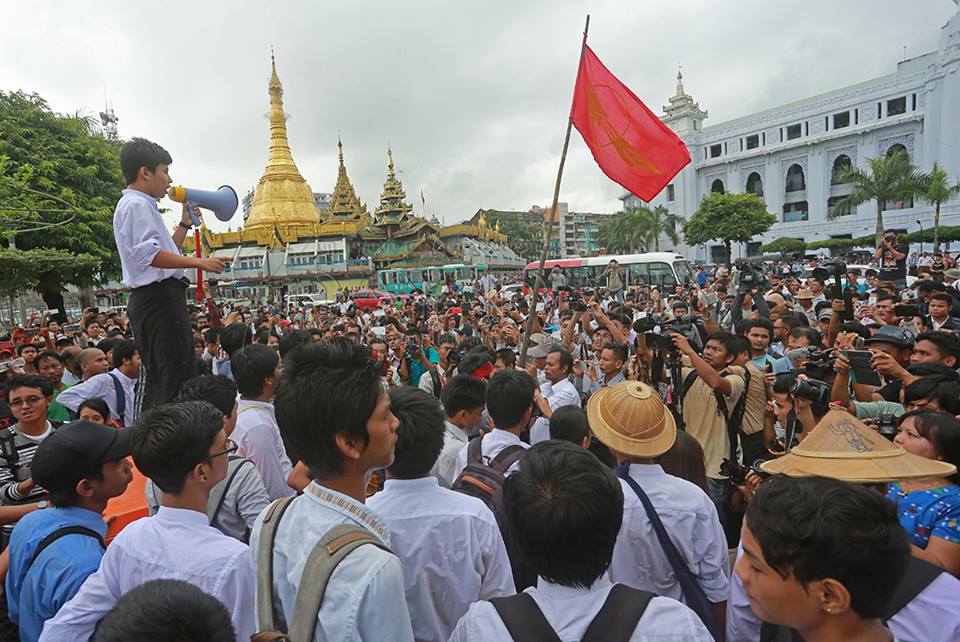 After an increasingly dispiriting start to 2015, and with landmark national elections now likely only five months away, Burma’s flimsy “reform process” is unraveling inexorably. First there was the 10 March crackdown on the nationwide student protest movement at Letpadan, Bago Region; then the Committee to Protect Journalists’ revealed that, despite much-heralded media reforms in 2011, Burma featured yet again in its 2015 rogues’ gallery of top 10 most censored countries on the planet; more recently, the refugee crisis, triggered mostly by severe state and religious persecution of the Rohingya and other Muslim minorities in Arakan State, caught the world’s attention. Meanwhile, grave human rights abuses – including sexual violence – continue unabated in ethnic conflict areas, especially in war-torn Kachin State, parts of northern Shan State and Arakan State, bringing the total number of IDPs in Burma to over 660,000.
After an increasingly dispiriting start to 2015, and with landmark national elections now likely only five months away, Burma’s flimsy “reform process” is unraveling inexorably. First there was the 10 March crackdown on the nationwide student protest movement at Letpadan, Bago Region; then the Committee to Protect Journalists’ revealed that, despite much-heralded media reforms in 2011, Burma featured yet again in its 2015 rogues’ gallery of top 10 most censored countries on the planet; more recently, the refugee crisis, triggered mostly by severe state and religious persecution of the Rohingya and other Muslim minorities in Arakan State, caught the world’s attention. Meanwhile, grave human rights abuses – including sexual violence – continue unabated in ethnic conflict areas, especially in war-torn Kachin State, parts of northern Shan State and Arakan State, bringing the total number of IDPs in Burma to over 660,000.
WORLD REPORT 2015
Burma
The reform process in Burma experienced significant slowdowns and in some cases reversals of basic freedoms and democratic progress in 2014. The government continued to pass laws with significant human rights limitations, failed to address calls for constitutional reform ahead of the 2015 elections, and increased arrests of peaceful critics, including land protesters and journalists […]
| |British Government In Denial About Burma’s Stalled Reforms – New Briefing Paper
Burma Campaign UK today publishes a new briefing paper responding in detail to the British government’s misleading claims and the selective use of information that it uses to defend Burma’s reform process and its own trade-led policy. The briefing paper is available here:http://burmacampaign.org.uk/burma_briefing/british-government-defends-burma-reforms-burma-campaign-uk-responds/ […]
| |The FCO’s Human Rights Work 2013
In this report, we examine the 2013 Foreign and Commonwealth Office (FCO) Report on Human Rights and Democracy (2013 Report), and highlight some areas of particular concern. Promoting human rights should be a foreign policy priority, but for this to be meaningful, we believe that the Department would benefit from the establishment of clearly defined objectives and benchmarks to measure the outcomes of all of its human rights policies, and further prominence being given to these in the Report.
Countries of concern
The FCO designated 28 countries of concern in its 2013 report, where it judged the gravity of the human rights abuses to be so severe that a particular focus should be applied. We have concentrated our attention on three of these countries: Sri Lanka, Burma, and Israel and the Occupied Palestinian Territories. Favourable trade concessions to the EU market should be removed from Sri Lanka if the Government of Sri Lanka continues to deny the OHCHR investigation team access into the country. The Government should advocate re-imposition of sanctions by the EU if there is no improvement in the human rights situation in Burma. The human rights of Israeli, Palestinian and Bedouin citizens living in Israel and the Occupied Palestinian Territories continue to be of serious concern to the UK. […]
| |Constitutional Stalemate Sinks Hopes of Genuine Democracy and National Reconciliation
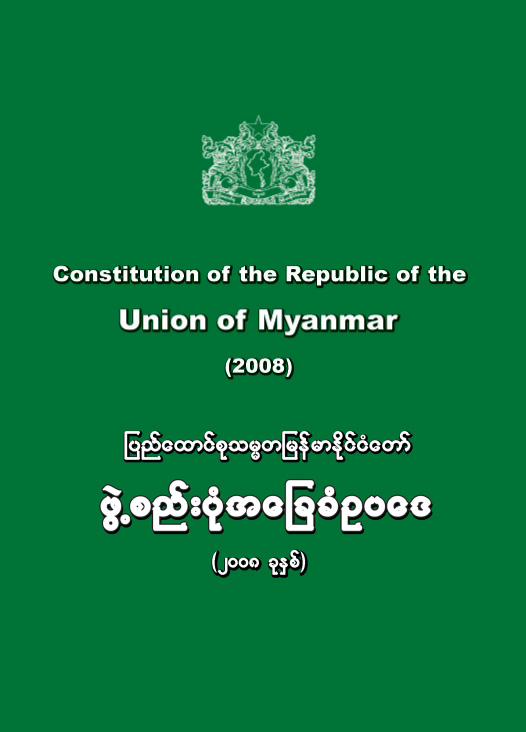 On Tuesday 18 November, Parliamentary Speaker of the lower house of the Burma Parliament Thura Shwe Mann boldly announced – to everyone’s great frustration but no one’s great surprise – that there would be no amendments made to the controversial 2008 Constitution before the 2015 national elections. So, what are the implications of this announcement, and why is the timing significant?
On Tuesday 18 November, Parliamentary Speaker of the lower house of the Burma Parliament Thura Shwe Mann boldly announced – to everyone’s great frustration but no one’s great surprise – that there would be no amendments made to the controversial 2008 Constitution before the 2015 national elections. So, what are the implications of this announcement, and why is the timing significant?
The implications for democracy in Burma are threefold. First, unless Article 59(f) is amended, Daw Aung San Suu Kyi will not be able to lead her NLD party and run for President in the 2015 elections. Although many have long feared the worst, thus far hope has persisted, especially in light of the NLD’s highly successful campaign in favor of constitutional amendment, which attracted five million signatories in support. However, Thura Shwe Mann now seems to be calling time on Daw Aung San Suu Kyi’s political career – and the dreams of so many long-suffering and long-hopeful Burmese – smoothly but ruthlessly side-lining her until such time as she can safely be labeled a political irrelevance, and dumped for good. At the same time, his comments can be interpreted as an oblique, discreet and wily announcement of his own ambitions for a tilt at the presidency next year.
Second, without a significant overhaul of the 2008 Constitution to ensure that the rights, autonomy and self-determination of ethnic minority nationalities are respected and enshrined in law, the peace process does not stand a chance. Fighting rages on in Kachin State – not to mention in northern Shan and Karen State – with no sign of abating. The day after Thura Shwe Mann made his announcement, 23 Kachin and other ethnic nationality soldiers were killed and as many as 15 wounded when Burma Army troops fired on a military training base in Laiza, the strategic headquarters of the Kachin Independence Army. […]
| |British Government Still In Denial About Reality Of Burma Reforms
Following a debate on human rights in Burma in the British Parliament yesterday evening, Burma Campaign UK today accused the British government of being in denial about the reality of the reform process in Burma. Burma Campaign UK called on the British government to formally accept that the reform process in Burma has stalled, that the process is not a transition to democracy, and to change policy accordingly. […]
| |
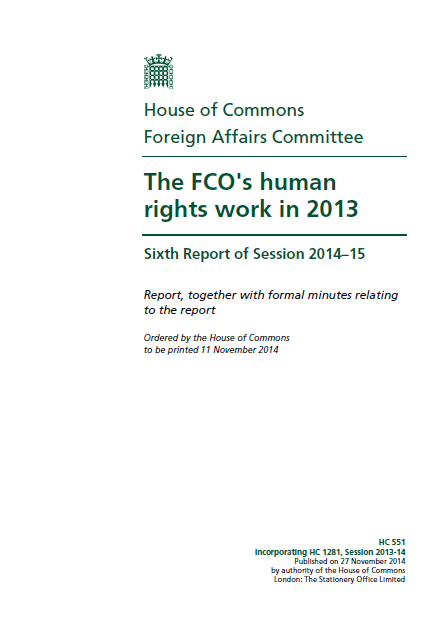
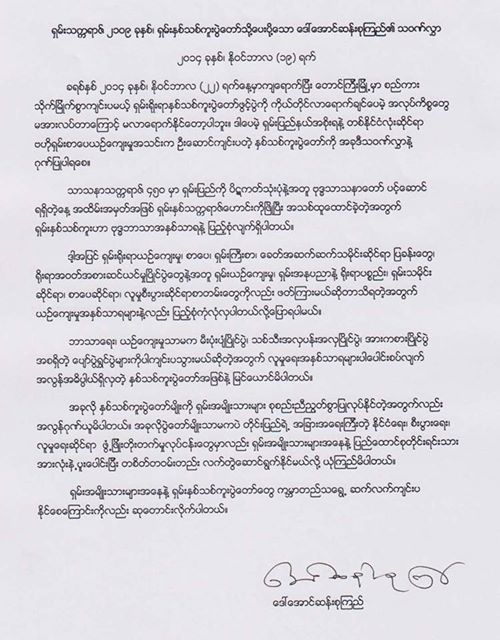








 All posts
All posts